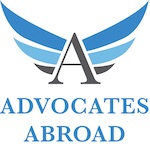
Advocates Abroad
Our mission is to provide legal aid to every refugee and asylum seeker in need, without discrimination or compensation.
Note: This page is frequently updated. It is by no means complete.
This page focuses on Facebook groups and websites of NGOs, volunteer groups, think tanks, and programs serving and/or discussing legal services for refugees. Links to Facebook and/or websites are just below the organizations' descriptions. Descriptions are from their Facebook page, unless noted.

Advocates Abroad
Our mission is to provide legal aid to every refugee and asylum seeker in need, without discrimination or compensation.
Advocates Abroad is a non-profit organization (NGO) with field, remote, and research teams dedicated to providing reliable, accurate, and free legal and non-legal assistance to any asylum seeker in need.
Remote Advocates respond to online case requests from all over Europe and the Middle East, particularly from Greece, Turkey, and Syria.
The remote team also supports and serves the Greece and Turkey- based field teams with interpreter services and research on complex legal requests. Online legal advice is provided through trained and qualified attorneys.
Research Advocates offer individualized interview prep packets, with focused research documenting state-specific human rights violations.
This team also produces policy papers, demonstrating in-depth research on relevant and crucial topics within this crisis, such as detention practices and family rights in wrongful death cases. Researchers are noted academics and human rights experts.
Advocates in the field operate in and around detention centers, refugee camps, and first reception centers throughout the Greek islands and mainland. In Turkey, Advocates operate on the western and south-eastern borders.
These three teams together provide consistent, relevant, and timely legal assistance and basic humanitarian aid.
Individual and group sessions are available for legal and non-legal information on asylum, detention, and related concerns.
All field and remote teams work with locally licensed attorneys.
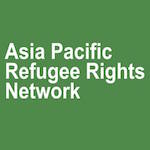
The Asia Pacific Refugee Rights Network (APRRN) is an open and growing network consisting of more than 300 civil society organisations and individuals from over 28 countries committed to advancing the rights of refugees in the Asia Pacific region. APRRN aims to advance the rights of refugees and other people in need of protection through joint advocacy, capacity strengthening, resource sharing and outreach. APRRN envisions a region in which all people in need have equal and adequate access to assistance and protection, and to timely durable solutions as relevant. We envision a region in which refugee communities, civil society, UNHCR, States (including those outside the region) and other actors collaborate effectively towards the common purpose of protection.
Facebook
Website
Asylum in Greece
An animation to explain the procedures for asylum in Greece. It describes all parts of the process from registration to the appeal stage.
Film
Website of RefuComm, the creator

Asylum Information Database Comparator
The Asylum Information Database (AIDA) is a database containing information on asylum procedures, reception conditions and detention across 20 countries. This includes 17 European Union (EU) Member States (Austria, Belgium, Bulgaria, Cyprus, Germany, Spain, France, Greece, Croatia, Hungary, Ireland, Italy, Malta, Netherlands, Poland, Sweden, United Kingdom) and 3 non-EU countries (Switzerland, Serbia, Turkey).
AIDA started as a project (September 2012 – December 2015) of the European Council on Refugees and Exiles (ECRE), in partnership with Forum Réfugiés-Cosi, the Hungarian Helsinki Committee and the Irish Refugee Council, and is now developing into a core activity of ECRE. The overall goal of the database is to contribute to the improvement of asylum policies and practices in Europe and the situation of asylum seekers by providing all relevant actors with appropriate tools and information to support their advocacy and litigation efforts, both at the national and European level.
Note. Check the date to make sure that the data are current.
Facebook
Website

Asylum Research Consultancy (ARC) was set up by Liz Williams and Stephanie Huber in 2010 in order to raise standards in the refugee status determination (RSD) process, improve the realisation of asylum seekers’ and refugees’ rights and entitlements and to ensure that those in need of protection are recognised as such. It is staffed by human rights researchers and COI specialists.
Accurate, reliable and relevant Country of Origin Information (COI) is central to RSD in order to inform decision makers about conditions in the countries of origin of asylum applicants and to assist them in establishing objective criteria as to whether an asylum claim is well founded.
In addition to case specific COI research queries, ARC provides country specific and thematic COI research for UNHCR, publishes commentaries on UK Home Office Country Information and Guidance reports (and previously commentaries on the now discontinued Operational Guidance Notes), and commentaries on European Asylum Support Office (EASO) COI reports. ARC also undertakes research consultancy, project management and training to the asylum, immigration and human rights sector both in the UK and internationally.
ARC manages the international COI Forum which provides a platform for COI researchers and refugee status determination practitioners to share publications and ideas on COI research and sources, and to develop shared resources. ARC also provides a free bi-monthly COI Update, which contains notifications of new Home Office COI publications as well as recent publications and developments in the top countries of origin of asylum seekers in the UK.
Facebook
Website

Berkeley Law's Refugee Law Research Guide
This guide focuses on research and resources relating to refugees, migration, human rights, and related issues, such as displaced persons.
Note. This collection includes research guides, background and introductory sources, international instruments and documents, useful books and print materials, U.S. legislation, U.S. Federal regulations, the Federal Register, administrative decisions and code law, and more.

Forschungszentrum Ausländer- & Asylrecht (Research Centre for Immigration and Asylum Law - FZAA)
The Research Centre Immigration & Asylum Law (FZAA = Forschungszentrum Ausländer- & Asylrecht) at the University of Konstanz concentrates on German, European and international immigration and asylum law and its interdisciplinary merits. The Research Centre engages in common projects with international partners and close collaboration with policy-making and legal practice. Professor Hailbronner, Thym and Schönberger lead its activities.
Facebook
Website

The International Detention Coalition (IDC) is a unique global network, of over 300 civil society organisations and individuals in more than 70 countries, that advocate for, research and provide direct services to refugees, asylum-seekers and migrants affected by immigration detention.
The IDC works to ensure that the human rights of refugees, asylum seekers and migrants impacted by immigration detention are respected, protected and fulfilled. The IDC aims to bring about changes in legislation, policy and practice that prevent, mitigate and respond to the harms associated with immigration detention and that promote alternatives to detention. The IDC does this through our four key areas of work: network and capacity building, advocacy, awareness raising and campaigns, research and reporting.
Facebook
Website
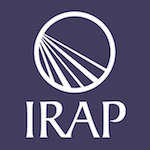
International Refugee Assistance Project (IRAP) at the Urban Justice Center organizes law students and attorneys to provide legal representation to those who have none. We help refugees navigate the rules and processes of refugee resettlement. Our work helps families and individuals escape from harm and persecution.
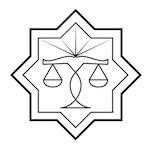
Legal Centre Lesbos
We are a team of lawyers, law students and interpreters from across the world who show our solidarity with the refugees of Lesvos and Europe through our legal work, based in Mosaik Support Center for Refugees and Locals in Lesvos, Greece. Our project aims to create meaningful change through direct consultation and representation, strategic litigation and refugee led advocacy.
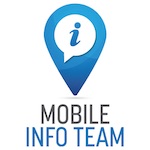
Mobile Info Team informs refugees in Northern Greece about their asylum options and shares up-to-date information about asylum procedures (including pre-registration, relocation and family reunification).
We are a collective of volunteers, we receive no pay for our services but rely on donations to fund our work. We are in contact with asylum institutions, NGOs, grassroots organisations and refugees to collect and share information on navigating asylum procedures. We visit camps and other accommodation in the North of Greece to speak to refugees and hear their situation, aiming to empower them by giving them the information they need to make informed decisions about how to proceed with their asylum claims. We also answer questions through our Facebook page.

Nasihat Kanun is a program promoting legal awareness and coordinating free legal services for the Syrian population in Turkey. Please type a question in the form below to send a legal question to Nasihat Kanun. Our Turkish lawyers will review your request and respond to you via SMS.
Facebook
Website
![]()
Oxford University Press Public International Law
In response to the refugee crisis in Europe, Oxford University Press has made more than 30 book chapters, journal articles, and pieces of content from online resources freely accessible to assist those working with refugees on the ground, as well as anyone who would like to know more about the framework of rights and obligations concerning refugees. The materials are structured around four key questions: who is a refugee, what rights do they have, what are transit states’ obligations, and what are the duties of the state where a refugee applies for asylum. Other useful resources are linked to at the bottom of the page.
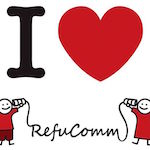
RefuComm
As an organisation that has been working with information for refugees for the past year in Hungary, Croatia, Serbia, the Greek Islands and mainland Greece. We are aware that asylum seekers in Greece are struggling to understand the processes which result in them often being deported after receiving a negative decision.
Unaccompanied minors in particular are responsible for their own asylum applications and struggle to understand what they need to do access their rights. Refugees are struggling to integrate into a destabilised and bureaucratic Greek economy and society. Survival becomes paramount.
Greek public bodies are unable to move fast enough to provide information and amenities to asylum seekers and we work with them to fill this information gap.
The information that they do provide can be complicated, long and often not translated into languages the refugees understand. It can be difficult to find answers to essential information that is relevant to a them in any given circumstance.
That's where we come in.
There is no other organisation with as much material available in as many languages as RefuComm. We work with the UN, Greek Asylum Service and other key actors in the country to help get vital yet lacking information to refugees.
We source information: checking dates, legality and rumour to produce, translate and distribute accurate information for refugees. The information we provide is focused on the bureaucratic processes in Greece - from asylum in Greece to family reunification and relocation, support for unaccompanied minors and vulnerable people to appealing against negative decisions.
We create documents, videos and audio files to get information to refugees in a format that works for them. We get into camps, squats and meeting places on the mainland to get information to refugees directly - to give them the best chance of understanding the system and preparing them for the various stages within it.
We train volunteers so that they have a rudimentary but accurate understanding of the processes that they can share with refugees.
We train 'Cultural Mediators' to deliver briefings to refugees in their own language around the asylum process, family reunification, relocation and interview preparation.

Refugee Law Clinic Berlinb is an initiative at the Humboldt University of Berlin formed by undergraduate and PhD students with different backgrounds. We aim to educate students in asylum and migration law.
A combination of theoretical and practical elements will enable the students to give free and competent legal advice for migrants and refugees in Berlin.
The Refugee Law Clinic Berlin e.V. offers legal aid for those in need, complements the general university training and helps closing the gap between education and application.

Rights in Exile
In February 2010 the Fahamu Refugee Programme launched the Fahamu Refugee Legal Aid Newsletter, a monthly electronic publication that allows refugee legal aid providers to exchange information and receive relevant news. The newsletter follows recent developments in the interpretation of refugee law; case law precedents from different constituencies; reports and helpful resources for refugee legal aid NGOs; and stories of struggle and success in refugee legal aid work.
The newsletter welcomes contributions from legal aid providers, refugees and others interested or involved in refugee legal aid, and solicits articles, requests for information, feedback, and news in each issue. The blog format allows quick and free access to the newsletter for all interested, through multiple access-points: on the blog itself; via Facebook and Twitter; on the Fahamu Refugee Legal Aid website, where past PDF-version issues of the Newsletter are available for free download; through the Fahamu Refugee Legal Aid email list; and by email subscription. Please send submissions to: Refugeelaweditor at gmail dot com.

The Screening Process for Refugee Entry Into the US - November 25, 2015
Refugees undergo more rigorous screening than anyone else we allow into the United States.
The infographic and the full text

The Southern Refugee Legal Aid Network (SRLAN) began in 2007 at a conference in Nairobi, Kenya. It was born out of a common understanding amongst its members that refugees are people with rights enshrined in international human rights and refugee law, but whose rights are regularly violated. These violations can be committed by the police, national courts, government officials or non-governmental organisations, amongst others.
The human suffering refugees endure often results from restrictions on their autonomy as human beings, and thus must be addressed by ensuring their ability to exercise basic rights. This is particularly challenging in the global South, where judicial institutions to address rights violations are less developed and/or accessible. To remedy this, organisations are increasingly conducting rights-based advocacy for refugees in the global South, through pro bono legal aid and/or research and policy advocacy. These organisations are bound by a common desire to foster respect for the rights of refugees in the global South.
These organisations are often unique in their countries and isolated from each other internationally. While they face common challenges, they have not had sufficient opportunities to learn from each other’s experiences. Slowly and informally, however, rights-based refugee organisations have been increasing their information sharing and coordinated advocacy. The SRLAN was thus initiated to formalise such cooperation, with a view to channelling disparate refugee rights organisations into a movement for refugee rights in the global south. At the time of inception, the SRLAN concluded the Nairobi Code, which all members agreed to uphold. The Nairobi Code has since been adopted by legal practitioners and legal aid organisations around the world as the ethical standard by which legal providers in refugee status determination and other legal services should abide.
Facebook
Website

UNHCR Help - Greece
UNHCR, the UN Refugee Agency created the website help.unhcr.org/greece for refugees and asylum seekers in Greece. On this website you will be able to find information about:
Note. This site is in English, French, Greek, Farsi, and Arabic.
Facebook
Website
Last updated September 18, 2017
Please send suggestions to Dianne Walker.